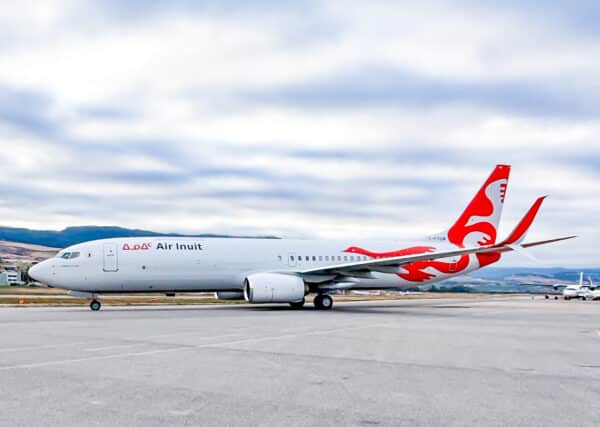Korean Air’s Freighter Fleet Renewal Initiative
Korean Air is preparing to modernize its cargo fleet by planning to replace its aging 747-400F freighters with more advanced 777-8F aircraft. This move is part of a broader strategy, aiming to address both fleet expansion and replacement needs. The airline’s decision to order eight new 777-8Fs underscores its commitment to adapting efficiently to future cargo demand.
Current Fleet Position and Growth Considerations
At present, Korean Air holds the distinction of owning the third-largest freighter fleet among global scheduled combination carriers. Their existing 747-400F freighters have been the backbone of their air cargo services but are approaching a stage where renewal is crucial to maintain operational efficiency and competitive edge.
The introduction of the 777-8F model promises not only increased fuel efficiency but also improved payload capabilities and operational flexibility. Such features are key to sustaining and growing cargo volumes in a market that continues to demand speed and reliability.
Technical and Operational Advantages of the 777-8F
- Brandstofefficiëntie: Advanced engine technology reduces fuel consumption, lowering operating costs and emissions.
- Laadvermogen: Improved design allows for larger cargo loads, optimizing freight capacity for both bulky and palletized goods.
- Range and Versatility: The new freighter supports longer nonstop routes, enhancing distribution reach for international cargo movements.
- Maintenance Benefits: Modern design features reduce downtime and maintenance complexity, boosting fleet availability.
The Strategic Importance for Cargo Logistics
Updating a freighter fleet is more than just swapping old planes for new models. It’s a calculated move that affects the entire logistics chain. Korean Air’s decision will likely influence global air cargo dynamics, driving greater efficiency in freight dispatch and distribution. Modern freighters like the 777-8F have a direct effect on shipment speed and reliability, crucial factors for time-sensitive goods or perishable cargo. This approach aligns well with evolving logistics demands, as companies seek dependable shipping partners capable of handling diverse cargo across continents.
Potential Impact on International Freight Operators
| Aspect | Impact |
|---|---|
| Fuel Efficiency | Lower operating costs may lead to more competitive freight rates, benefiting shippers worldwide. |
| Increased Payload | Higher payloads support larger shipments in single hauls, aiding supply chain optimization. |
| Extended Range | More direct routes can reduce transit time, improve delivery speed, and minimize handling. |
| Fleet Modernization | New technologies enhance tracking and cargo handling, adding transparency and security to shipments. |
Other Industry Movements and Market Responses
While Korean Air doubles down on the 777-8F, other carriers are exploring different avenues for fleet expansion or replacement, including interest in other freighter models like the A330. These decisions collectively contribute to how the air freight landscape will evolve, with airlines balancing cost-effectiveness, environmental impact, and cargo capacity.
Operators frequently reassess their strategies based on market trends, technological advancements, and regulatory environments. In this context, Korean Air’s bold step to adopt the 777-8F is a telling sign about where air cargo logistics is headed — toward greener, more efficient, and more capable aircraft.
Korean Air and Global Logistics Integration
Korean Air’s fleet renewal is particularly significant for logistics service providers. As cargo aircraft become more capable and efficient, shippers and logistics businesses will experience streamlined delivery schedules, more reliable international cargo transit, and potentially lower shipping costs. These improvements are essential for industries with tight supply chains and growing demands for faster parcel and pallet shipments, ranging from retail products to large, bulky cargo.
The Value of Personal Experience and Reliable Platforms in Logistics
There’s no substitute for firsthand experience when choosing a carrier or logistics partner. While reviews and feedback can paint a picture, the real test comes with using the service yourself. Platforms like GetTransport.com make it easier to explore the best global options for cargo transport, offering competitive prices, transparent booking processes, and extensive service variety — whether moving office equipment, home goods, vehicles, or oversized freight.
Thanks to such platforms, customers gain access to tailor-made shipment solutions without the headache of navigating opaque or overpriced alternatives. This transparency and convenience are crucial when delivering goods on time and budget in today’s fast-paced market. Book your Ride at GetTransport.com and experience the difference yourself.
Forecasting the Logistics Impact of Korean Air’s Fleet Upgrade
Globally, while this specific fleet modernization does not overhaul the entire air freight market, it exemplifies the continuous push toward innovation within logistics. Moving toward newer, more efficient aircraft reflects a broader trend in freight forwarding and haulage, where technology and sustainability are at the forefront.
For customers and freight brokers, staying updated with such developments is key to planning and securing reliable shipments. The enhanced capabilities of 777-8Fs make them an attractive option for international cargo routes, providing assurance of timely delivery and better operational capabilities. Korean Air’s adaptation to market demands ensures they remain a strong player on the global logistics stage.
Begin met het plannen van uw volgende levering en beveilig uw lading met GetTransport.com.
Samenvatting
Korean Air’s decision to replace its aging 747-400Fs with Boeing 777-8Fs marks a significant fleet renewal that promises improved efficiency, greater payload capacity, and longer ranges for international cargo flights. This shift not only strengthens fleet performance but also reshapes the logistics landscape by enabling faster, more reliable shipments across global routes. With enhanced fuel economy and advanced technologies, the new freighters support a sustainable and cost-effective logistics strategy crucial to modern shipping demands.
Platforms like GetTransport.com offer practical solutions integrating these advances, simplifying the complex world of freight transport. The platform delivers an easy way to arrange cargo shipments, including bulky and specialized freight, all while providing competitive global pricing and comprehensive service options. Ultimately, such innovations and solutions help businesses and individuals alike keep goods moving smoothly, efficiently, and cost-effectively around the world.

 Korean Air Moves to Refresh its Freighter Fleet with Boeing 777-8F Acquisition">
Korean Air Moves to Refresh its Freighter Fleet with Boeing 777-8F Acquisition">